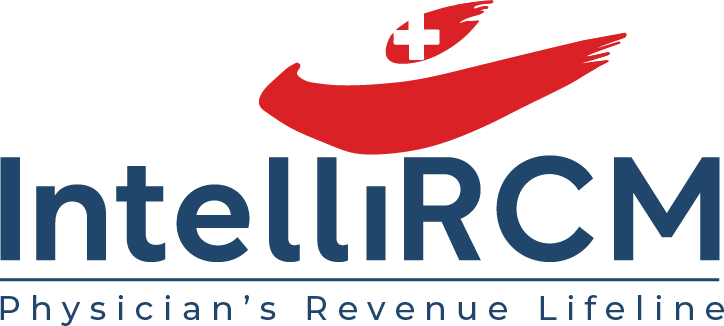By intellircm
14th Jan 2022
Blog
Every healthcare claim falls into the hands of insurance claim adjusters, who are responsible for verifying all information and passing it through numerous stages of processing in order to reach the right verdict. However, even if the insurance claims data is correctly submitted, there's a chance that the patient or the medical clinic will receive a claim denial. If this is the case, investigating the entire situation and the causal relationship is worthwhile to find the answer and figure out the problem.
What Is a Claim Denial Management?
Denial management in healthcare is arguably considered one of the most empowering strategies in the healthcare sector at the moment. It's no secret that an effective denial management strategy can improve performance metrics and maintain healthcare facility funds.
By far, this is a strategy that can empower healthcare CFOs to substantially diminish their expenses and move their businesses to the next level. It is generally accepted that
a robust denial management strategy is critical to mitigating the risk to healthcare facility revenues.
What Are the Common Types of Denials in Medical Billing?
In order to deal with the issue, the first step is to determine the reason why the medical billing process is not successful. Although there are a significant number of reasons for a denial, from a medical coding error to an invalid insurance plan, almost all of them are classified into specific categories. The most common denial types are the following:
When the insurer finds minor inaccuracies, it is mainly called soft denial. For example, inaccuracy in the insured's personal information form, a wrong diagnosis or treatment, poorly encoded data, or the insured's invalid insurance coverage plan may result in the insurance company suspending processing of the claim. However, this does not mean that the insurer has irrevocably denied the transaction. Most likely, the insurer needs to clarify some details to continue processing the claim, and the healthcare provider will receive the benefits.
A soft denial can inherently be regarded as a rejected claim and suggests more ways to tackle the issue. However, it is believed that it is sufficient to simply submit up-to-date information and the claim will be successfully handled. Therefore, straightforward and fast interaction between all representatives of the healthcare revenue cycle is critical to a quality and quick claim settlement.
Hard Denial
When the insurance company issues a hard denial, the healthcare provider is faced with the trouble of not being covered for the medical services provided. This decision means either there has been a serious error or the insurer has carefully reviewed the information provided and concluded that the client's insurance plan does not cover the particular expenses.
There are two ways to deal with a hard claim denial. As in the case of soft denial, the first step is to analyze the case and find the root cause. If the reason lies in a data error, there is a chance that coverage may still be possible by filing an appeal and following the necessary procedures. Usually, the
patient is responsible for filing an appeal. Still, the medical facility is also concerned, so these two often work hand in hand to increase the chances of an appeal being approved.
The worst-case scenario occurs when a patient's insurance plan does not include coverage for a specific insured event. In this case, there is no chance of getting an insurance claim reviewed because the medical service was not initially included in the claim agreement.
What Are the Best Tips to Handle the Claim Denial?
1. Verify the Patient’s Current Insurance Plan
As mentioned earlier, one of the main reasons for both soft and hard denials in health insurance is an irrelevant insurance plan. Even patients with long-term insurance agreements may change their insurance coverage plans for numerous reasons. Moreover, all insurance companies impose unique policies for the same procedures or treatment plans. Therefore, performing a regular data check of each patient's insurance benefits before each appointment is crucial to avoid further financial implications.
2. Build a Centralized Denial Database and a Robust Denial Handling Algorithm
Prevention is key to successful claim adjudication, so it is essential to learn from mistakes in order to avoid them next time or at least know how to act if the soft or hard denial happens again. Although this process is the most important, it is often relegated to a secondary role.
Keeping records of all claim denials helps structure all information and establish viable step-by-step solutions for each case. In addition, this approach contributes to faster denial handling since submitting an appeal requires understanding the reason for the denial and then proceeding according to established rules. Therefore, the experience of dealing with denials has not only a negative but also useful connotation.
3. Find the Top-Class Software Tools
Risk and denial management in healthcare operations has become much easier with the advancement of modern technology, helping automate all actions in the healthcare revenue cycle and minimizing errors at each stage of submitting data for processing. Besides, top-notch built-in reviewers of medical processes can verify the claims before submitting them to the payer. This will keep the medical staff from sending incorrect claim details in the early stages of the healthcare revenue cycle and minimize the number of denials.
Besides, in case of technical or administrative denials, a single database is the only source of information that can restore and re-examine the entire process to find and fix any errors.
Effective Denial Management with IntelliRCM
At IntelliRCM, we offer full-scale solutions for effective claim denial management and efficient strategies to minimize expenses with best practices. Our team of skilled medical billing and insurance professionals can optimize denial management processes to help both medical providers and their patients have the best possible experience. IntelliRCM can take claims processing in the revenue cycle to the next level with a state-of-the-art approach and proven methodologies.
Get in touch with us via email, phone, or by
filling out the contact form on the website.






